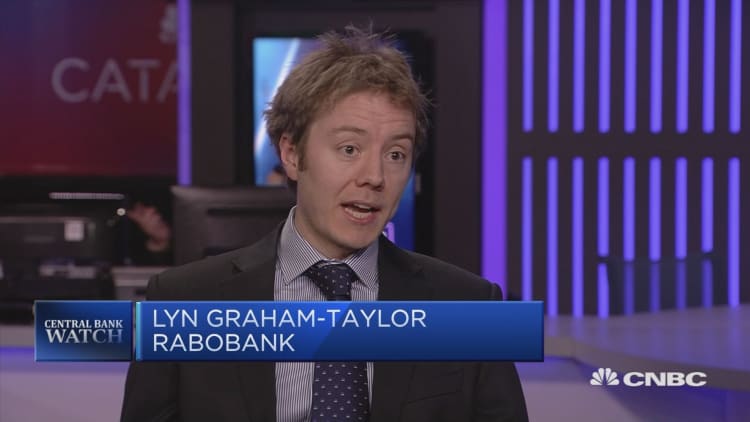The U.S. dollar rose against a basket of major world currencies after a stronger-than-expected report of U.S. consumer prices raised expectations that price pressures will accelerate this year and may prompt a faster pace of interest rate increases from the Federal Reserve.
A surprise decline in retail sales in January, however, may have limited the dollar's rise.
"Retail Sales truly disappointed," said Juan Perez, senior FX trader and strategist at Tempus in Washington. "They kept the dollar from blowing up after stellar CPI. People need to be buying things in order for the economy to grow and it seems like we're lacking on that."
The dollar index reached a session high of 90.124 following the inflation report, before paring some of those gains. The dollar last traded down 0.56 percent at 89.20.
The euro gained 0.57 percent against the dollar to $1.2421, still off the lows of $1.2206 hit on Friday.
The rose as much as 0.75 percent to 107.01, its highest since November 2016 versus the dollar as investors sought safety in the currency amid Japanese equity market falls.

Worries about rising inflationary pressures - and the need for central banks to tackle them - sent markets into a tailspin this month.
Swedish crown gives up gains
The Swedish crown rose as much as 0.4 percent to trade at 9.8750 crowns per euro, before giving up all of its gains.
The Swedish currency has fallen steadily since 2015, but the Riksbank considers the currency overvalued during a period of extraordinarily loose monetary policy in which official interest rates have been left sub-zero and below those of the euro zone.
"We should see this from the perspective that Sweden's central bank...is still very dovish and very cautious not to move too aggressively ahead of the European Central Bank," said Jan Bylov, Jyske bank strategist in Copenhagen.
"The Swedish crown is also being held back by less risk appetite following last week's equity rout, so people are cautious."

